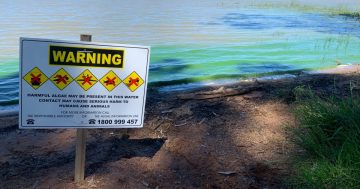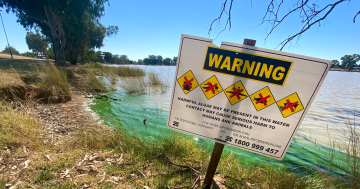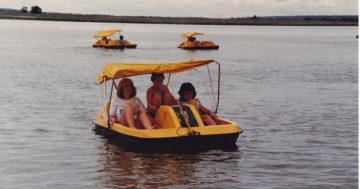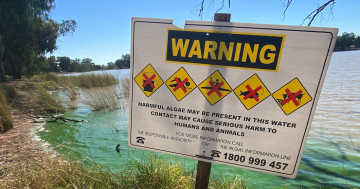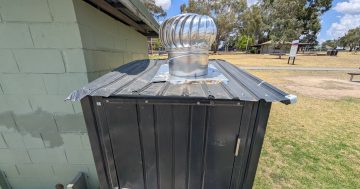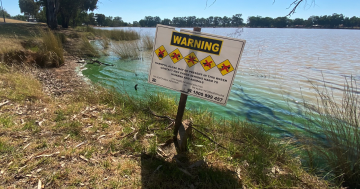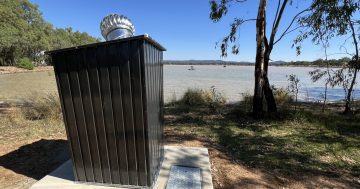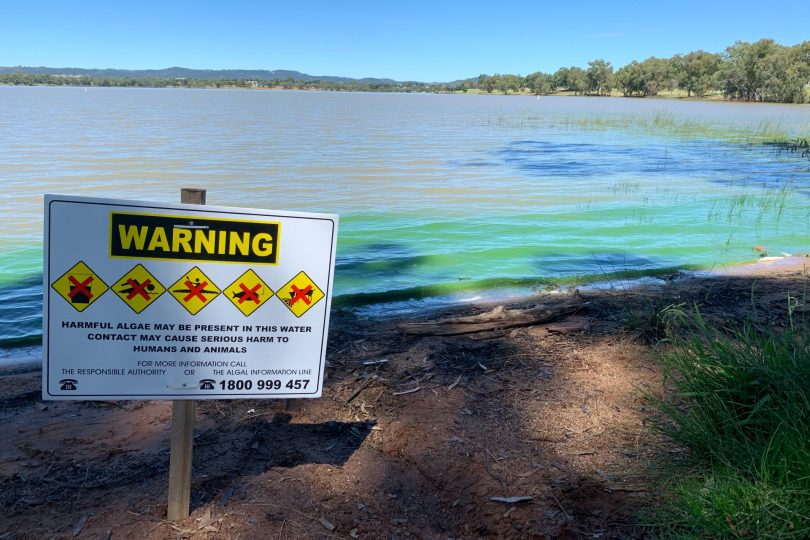
Lake Albert has been closed due to the presence of blue-green algae. Photo: City of Wagga Wagga.
Wagga Wagga City Council has closed Lake Albert after the return of blue-green algae and advised the public to avoid contact with the water.
Wagga City Council manager environment and regulatory services Mark Gardiner said the council had observed the visual signs of algae scum, which poses a public health hazard.
On Monday, 7 March, the council placed signs advising the community that people and pets should not come into contact with the water in the lake.
Mr Gardiner described it as “unsuitable for all uses, including drinking and recreational use”.
“Particular care should be taken where algae can be seen or where the water has a strong odour,” Mr Gardiner said.
“Blue-green algae can appear as specking, suspended clumps or as algal scums, which take the form of green or yellow discoloured slicks on the water surface.”
The blue-green algal blooms occur in bodies of water with high nutrient loads, often boosted by periods of high temperature or heavy rainfall.
Wagga Wagga City Councillor and Wagga Boat Club commodore Mick Henderson has been actively involved in trying to resolve the issues at the lake since 2009. He said the lake’s closure is “just so frustrating”.
“What are we doing wrong? It’s been over 12 years since I got involved with it and it is still in the same condition,” Mr Henderson said.
“The question is why? Are the ultrasound machines out there not working? Why has it been good water out there and all of a sudden, there’s a red alert?”
He said the closure significantly impacts a number of the lake’s user groups and likely means that this year’s boating season is over. For the Boat Club, which has made a resurgence following the pandemic and drought in recent times, the closure means they’ll lose a lot of the momentum they’ve been gathering.
“I can guarantee that we are going to lose three events and the Barry Carne in May – that’s a major event and a major drawcard for the club every 12 months,” Mr Henderson said.
“We’ve got a triathlon this weekend where they were going to swim in the lake and that’s canned. We have another boat event the following weekend that’s going to be canned. It’s just ongoing.”
While the Murrumbidgee to Lake Albert pipeline, which would pump 1800 megalitres of Murrumbidgee water into Lake Albert, has been floated as a solution to algae problems, Mr Henderson isn’t convinced it’s the solution.
“The problem we’ve got with that is it’s not going to rectify this problem because we are only allowed to pump in the winter months of the year; I believe that’s from April to October,” he said.
“Even in the event that we have blue-green algae in this part of the year, we still can’t use our pipeline to pump decent water into it.”
Mr Henderson pointed out that when the lake went dry, vegetation around its foreshore was left to grow. This vegetation wasn’t cleaned up as the lake began to fill and he attributes the added nutrients in the water to its unchecked decomposition.
The Murrumbidgee Regional Algal Coordinating Committee has an algal contingency plan, which the council is following to resolve the issues at the lake in the short term.
Council did warn that it could be some time before the lake will be reopened but promised to continue to monitor the situation and notify the community once readings are at an acceptable level.
Original Article published by Max O’Driscoll on About Regional.







